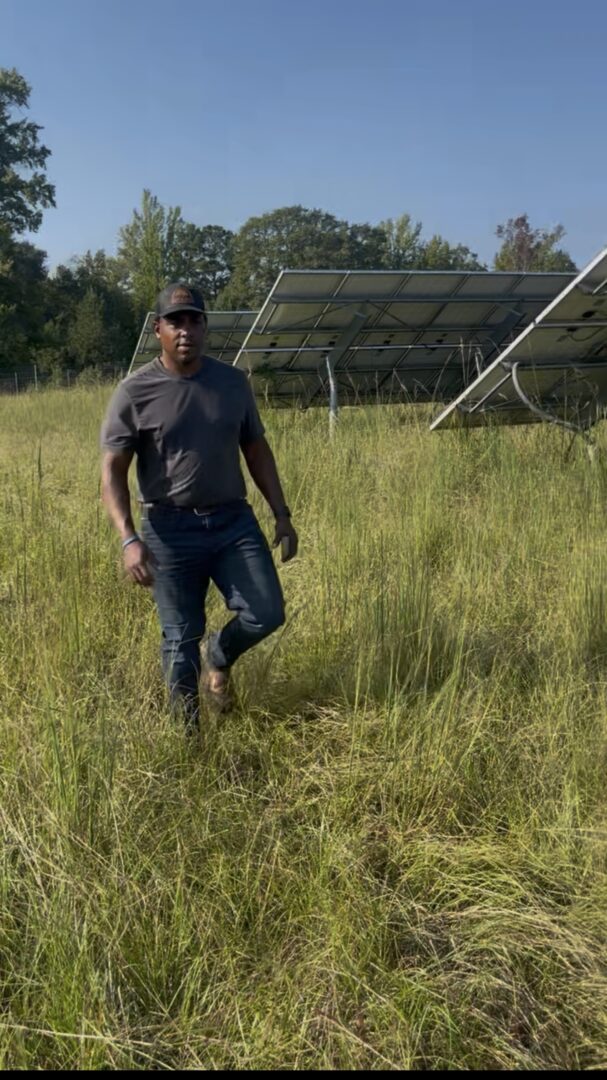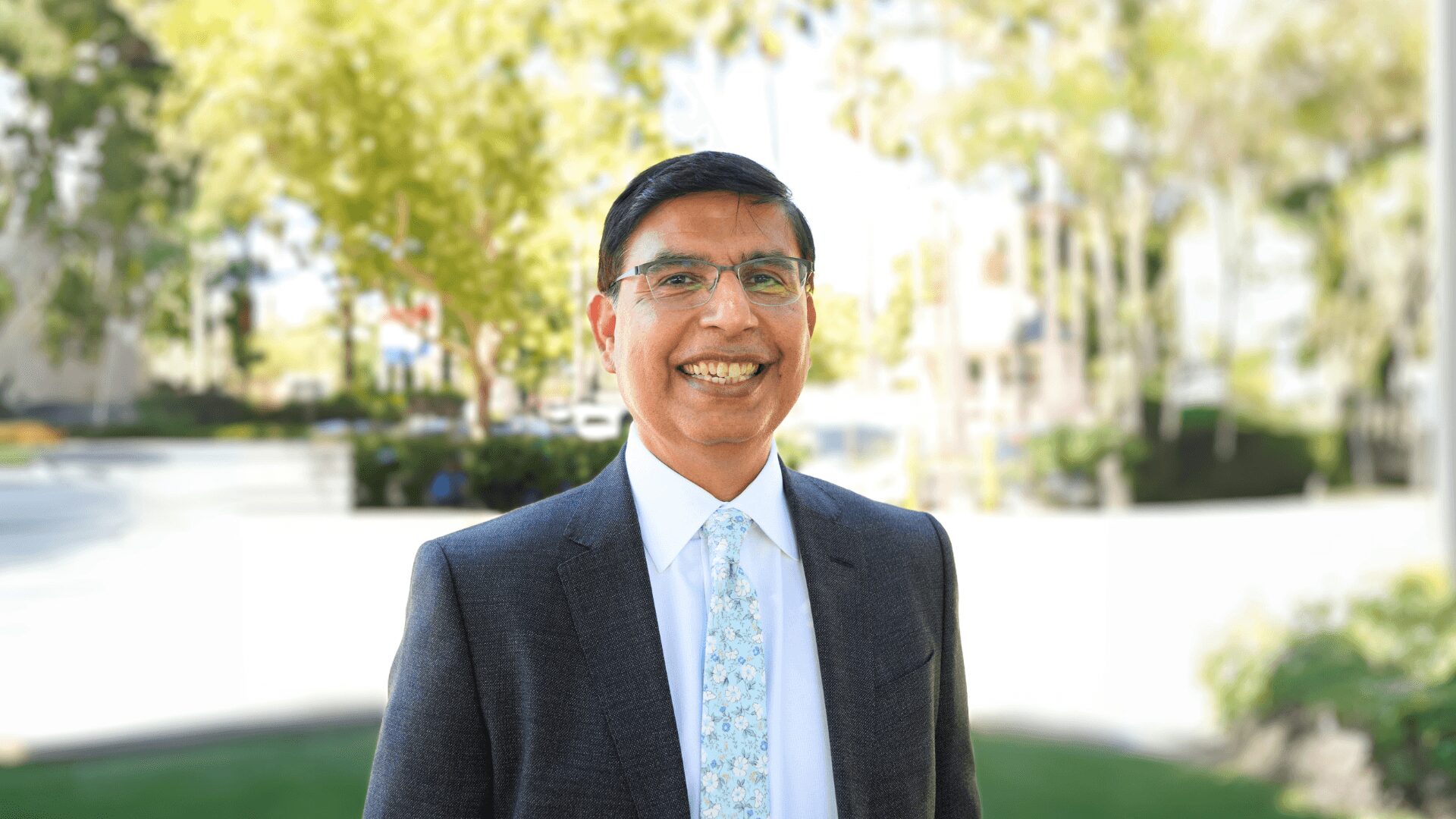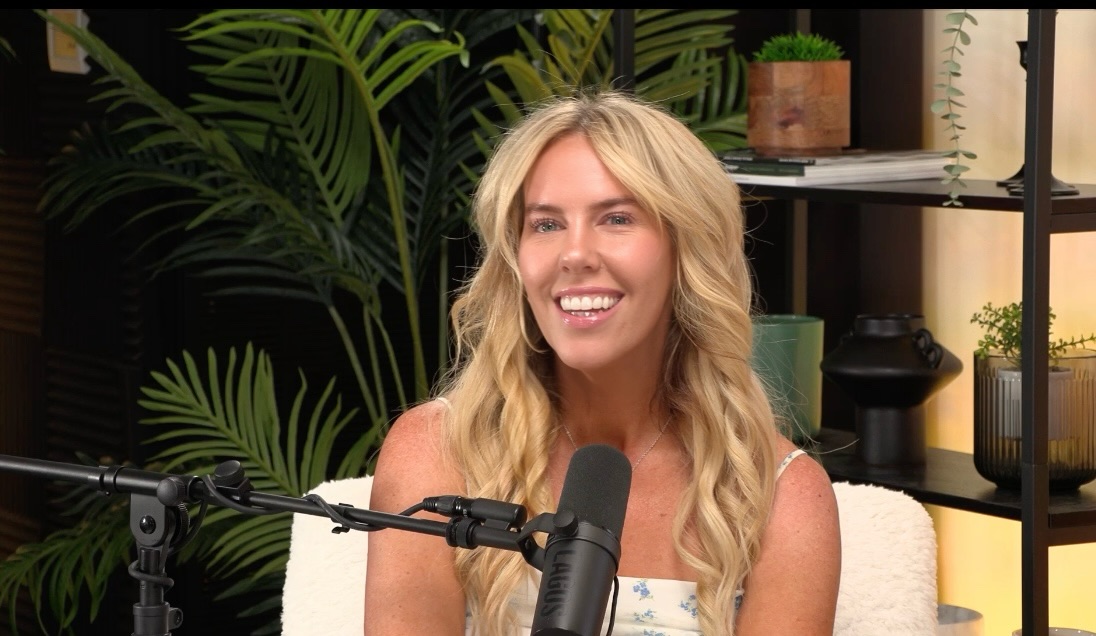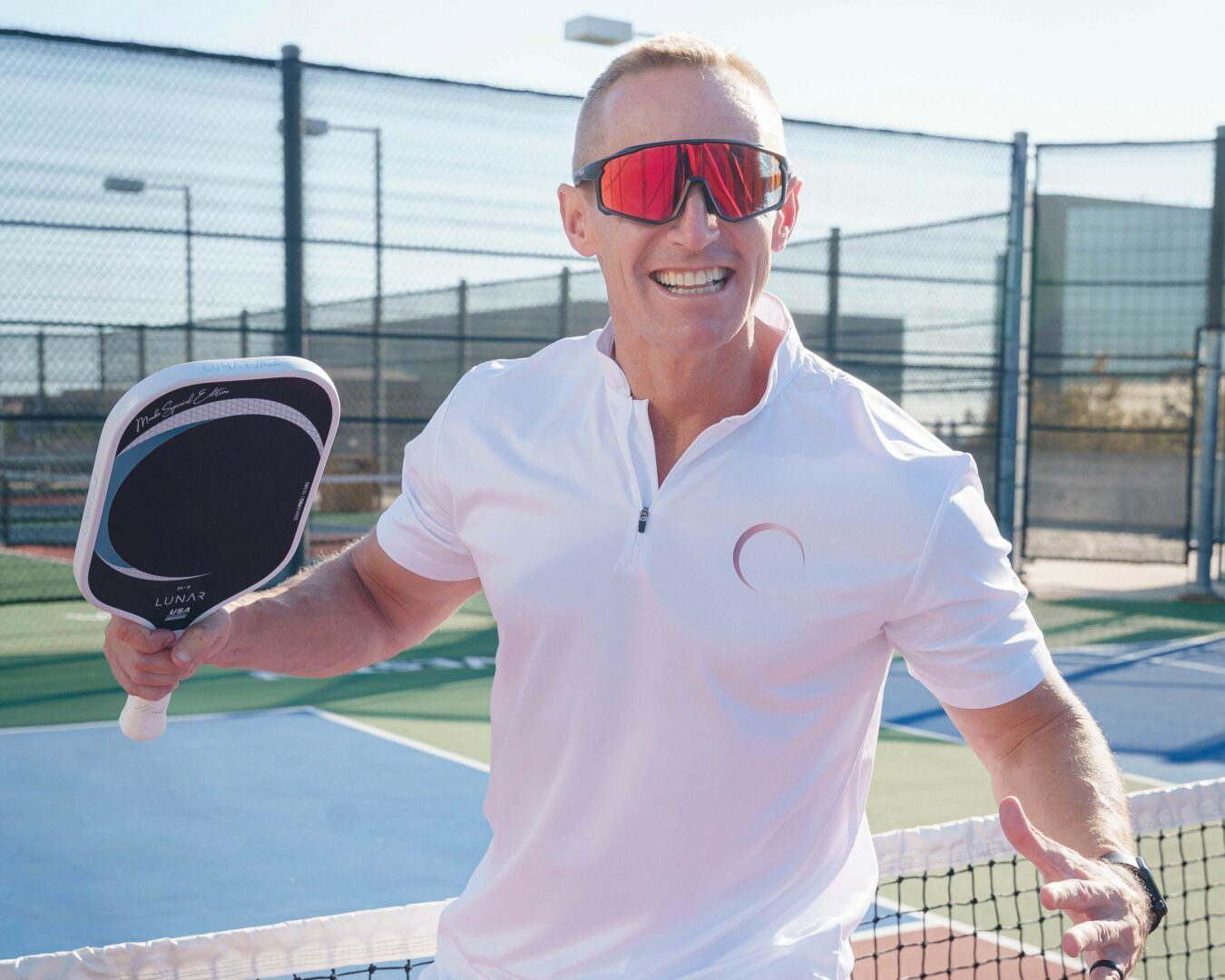We were lucky to catch up with Darnell Dugger recently and have shared our conversation below.
Darnell, thank you so much for making time for us. We’ve always admired your ability to take risks and so maybe we can kick things off with a discussion around how you developed your ability to take and bear risk?
My ability to take calculated risks was forged through three distinct chapters of my life, each building on the last.
It started in the military. At 19, joining the Army and deploying to Operation Iraqi Freedom in 2009 taught me that sometimes you have to act decisively even when outcomes are uncertain. ,You learn quickly that inaction can be riskier than taking a calculated chance. That experience fundamentally rewired how I view risk—it’s not about being fearless, it’s about assessing the situation and moving forward despite the fear.
The second layer came during my transition to civilian life. As a single father leaving military structure behind, I had to take the risk of reinventing myself in IT despite having no formal background in tech. I worked my way up to become a software support engineer by betting on my ability to learn and adapt. That taught me that skills can be acquired and that my inexperience shouldn’t disqualify me from pursuing what I want.
But the biggest risk came with Acre & Herd Ranch. When banks wouldn’t lend to me as a first-generation farmer with no agricultural background, I had a choice: play it safe or bet on myself. I chose to self-finance by selling my first home—putting everything I had built into a dream that existed only in my head. That’s when I realized my risk tolerance had evolved: I wasn’t just willing to risk failure anymore; I was willing to risk comfort and security for purpose.
What makes risk-taking sustainable for me is preparation. I spent countless hours researching sheep husbandry, attending workshops, and learning from mentors. Even then, I lost two lambs early on due to inexperience. But those failures didn’t break me—they informed my next decisions. That’s the key: I’ve learned that taking risks doesn’t mean being reckless. It means doing your homework, accepting that some failures are inevitable, and trusting that the lessons learned are worth more than the temporary setbacks.
I saw an opportunity in solar grazing—using my flock to maintain land under solar panels—which was a relatively new concept in my area. Most people thought I was crazy to pitch sheep as a solution to solar farm maintenance, but I understood the value proposition: my sheep could do the work more sustainably and cost-effectively than traditional mowing. Landing those first solar grazing contracts required me to take another leap—cold-calling solar companies, creating proposals despite having limited experience, and guaranteeing results I’d never personally delivered befor
Thanks for sharing that. So, before we get any further into our conversation, can you tell our readers a bit about yourself and what you’re working on?
At Acre & Herd Ranch, I’m building something that sits at the intersection of sustainable agriculture, environmental stewardship, and innovative land management. My mission is simple but powerful: to raise the highest quality American pasture-raised lamb while regenerating the land and pioneering new approaches to agricultural sustainability.
What makes this work exciting is that I’m not just farming—I’m solving multiple problems at once. My core business centers on providing customers with whole or half lambs through a direct farm-to-consumer model. This means families know exactly where their food comes from, how the animals were raised, and can taste the difference that ethical, pasture-based practices make. Every lamb is raised on open pastures using rotational grazing, which naturally fertilizes the soil, improves soil structure, promotes biodiversity, and enhances nutrient cycling. It’s agriculture the way it was meant to be—working with nature, not against it.
But what really sets Acre & Herd Ranch apart is our solar vegetation management services. I provide solar grazing services to solar operators, using my flock to maintain vegetation on solar fields. This innovative approach offers significant benefits over traditional maintenance methods. For solar operators, sheep grazing is more cost-effective than mechanical mowing, eliminates the need for herbicides and the associated chemical runoff, reduces carbon emissions from mowing equipment, and provides quieter, non-disruptive maintenance. For the environment, the benefits are even more profound: my sheep naturally fertilize the soil while grazing, improve soil health and carbon sequestration beneath the panels, support pollinator habitats by maintaining diverse plant species, and create a symbiotic relationship between renewable energy infrastructure and regenerative agriculture. It’s a perfect example of how agriculture can adapt to modern needs while staying true to sustainable principles.
Looking ahead, I have ambitious plans to become one of the largest sheep herders in Georgia. But size isn’t the only goal—I want Acre & Herd Ranch to be known as a model for how modern agriculture can be both profitable and regenerative. Every lamb raised, every solar field grazed, and every acre improved is a step toward that vision. This isn’t just a business; it’s my life’s work, and I’m just getting started.
Looking back, what do you think were the three qualities, skills, or areas of knowledge that were most impactful in your journey? What advice do you have for folks who are early in their journey in terms of how they can best develop or improve on these?
1. Persistence Persistence has been my foundation. When banks refused to finance me as a first-generation farmer with no agricultural background, I didn’t give up—I sold my first home to self-finance my dream. When I lost two lambs early on due to my inexperience, I didn’t walk away—I studied harder, reached out to mentors, and made sure it wouldn’t happen again. When solar operators were skeptical about using sheep for vegetation management, I kept refining my pitch until I could demonstrate the value proposition clearly.
My advice: Understand that persistence isn’t about being stubborn—it’s about being committed to the outcome while staying flexible about the path. Early in your journey, you’ll face rejection and setbacks that feel personal. They’re not. Every “no” is information that helps you refine your approach. The key is to wake up the next day and take one more action toward your goal. Document your small wins, because on hard days, you’ll need to remind yourself that you’re making progress even when it doesn’t feel like it.
2. Sales Skills
Sales isn’t about being pushy; it’s about understanding what problems people have and showing them how you can solve those problems better than anyone else.
Landing my first solar grazing contracts required me to learn an entirely new industry’s language, understand their pain points around maintenance costs and environmental compliance, and position my sheep as the solution they didn’t know they needed. Every contract I’ve secured has been because I invested time in understanding my customer’s world before I ever asked them to enter mine.
My advice: Start by shifting your mindset—you’re not “selling,” you’re solving problems and creating value. Early on, practice telling your story in 30 seconds, 2 minutes, and 10 minutes. Know your audience: what keeps them up at night? What metrics do they care about? Then position what you offer as the answer to their specific challenges. Role-play difficult conversations with friends or mentors. Record yourself on video and watch it back—you’ll catch filler words, unclear value propositions, and missed opportunities to connect emotionally. Most importantly, get comfortable with rejection. Sales is a numbers game, and the faster you can hear “no” and move to the next conversation, the faster you’ll find your “yes.”
3. Lifelong Learning & Networking
I’ve never stopped learning, and I’ve never tried to do this alone. From researching sheep husbandry online to attending agricultural workshops, from connecting with established farmers who became my mentors to listening to every episode of “How I Built This” for entrepreneurial insights—my growth has been directly proportional to my willingness to learn from others. Networking isn’t just collecting business cards; it’s building genuine relationships with people who’ve walked the path before you and can help you avoid their mistakes.
Finding my land through Georgia Farm Link happened because I was actively networking and seeking resources. Learning about solar grazing opportunities came from conversations with people in the renewable energy space. Growing my flock sustainably happened because experienced farmers generously shared their knowledge with me.
If you knew you only had a decade of life left, how would you spend that decade?
If I had only ten years left, I wouldn’t change much about the path I’m already on—I’d just lean into it more deeply and savor every moment.
I’d spend that decade doing exactly what I’m building now: living on pasture land, raising sheep, and experiencing true ranching life with my family by my side. There’s something profoundly grounding about working the land—watching the sunrise over open fields, moving sheep between pastures, seeing lambs grow strong on good grass. That connection to the earth and the rhythms of nature is where I feel most alive and most myself.
I’d spend my mornings on horseback, riding across the property, checking on the flock, and taking in the simple beauty of animals thriving under my care. There’s a freedom and peace in ranching that I never found in any other work—not in the military, not in IT. It’s honest work that connects you to something bigger than yourself.
Contact Info:
- Website: www.acreandhherd.com
- Instagram: https://www.instagram.com/acreandherdranch/
- Facebook: https://www.facebook.com/acreandherdranch
- Linkedin: https://www.linkedin.com/in/darnelldugger/
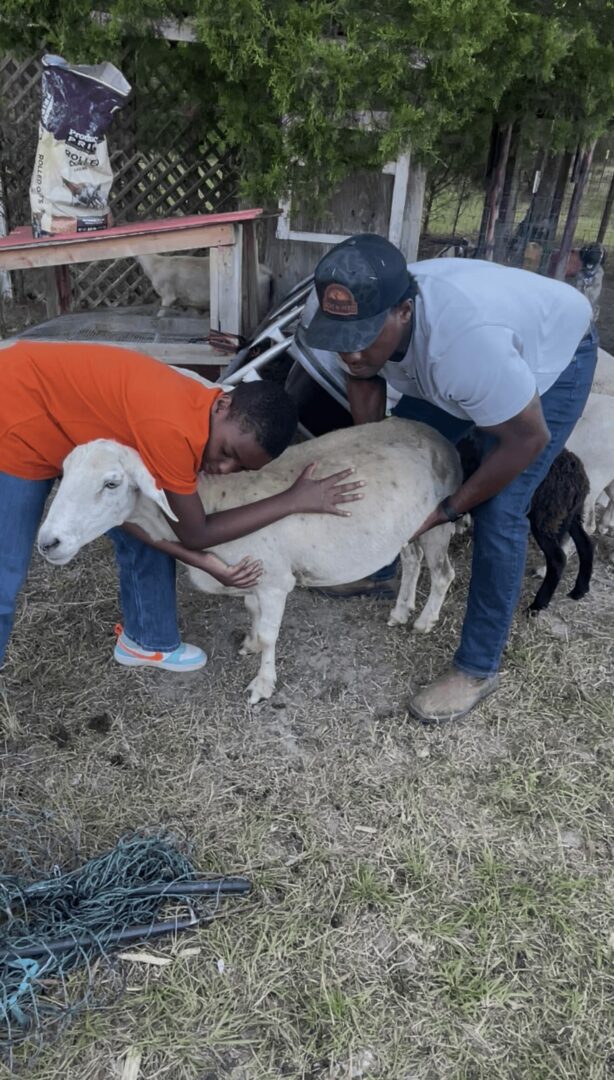
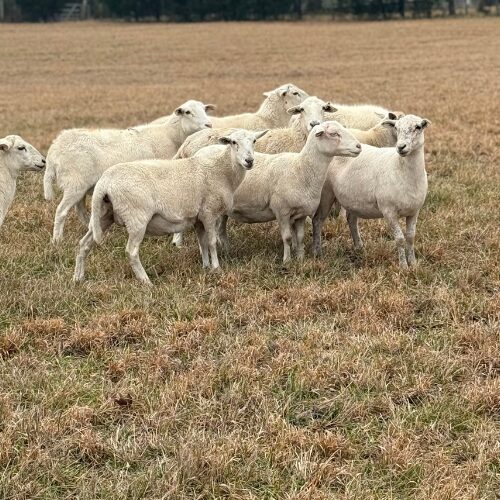
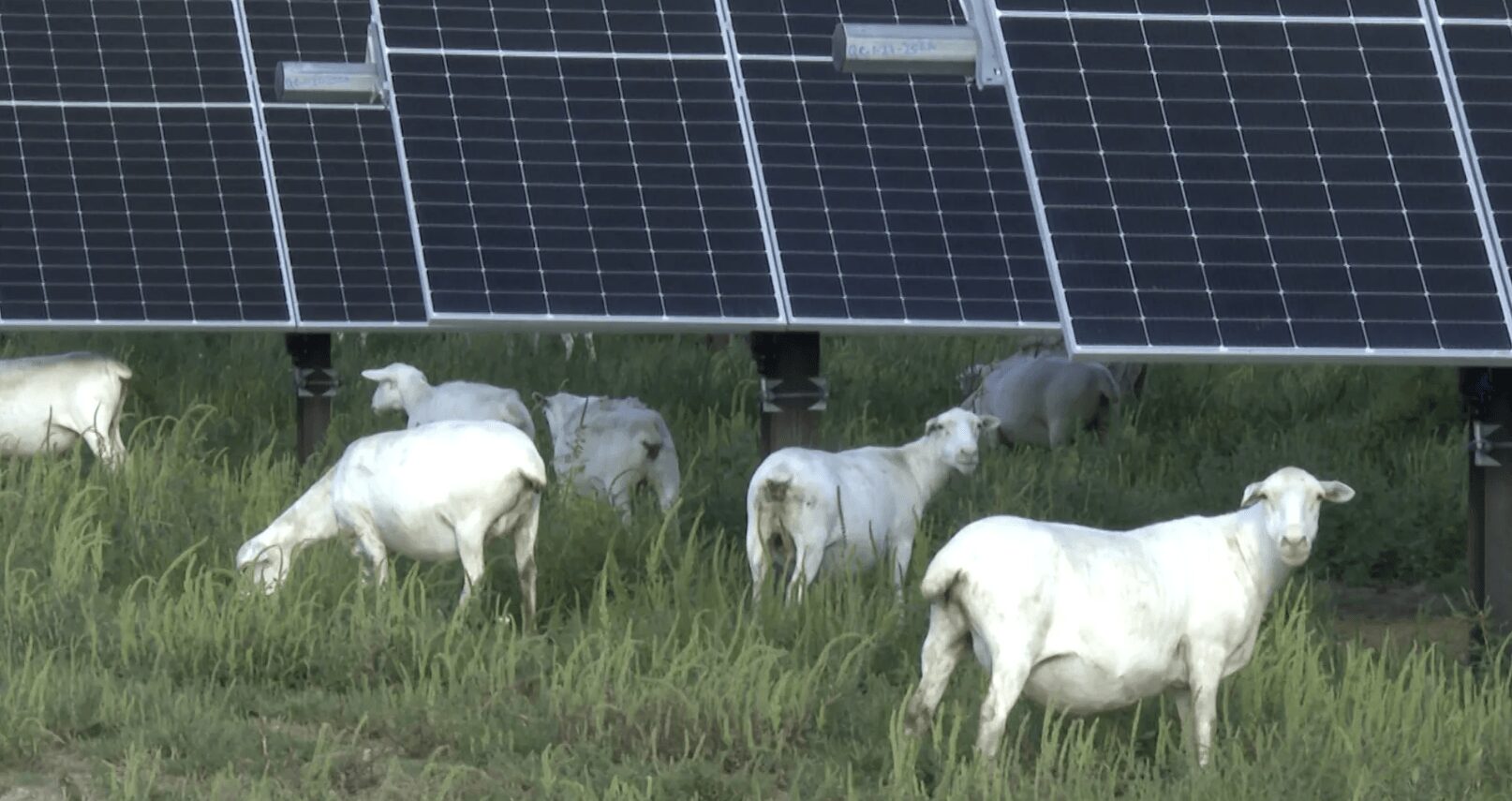
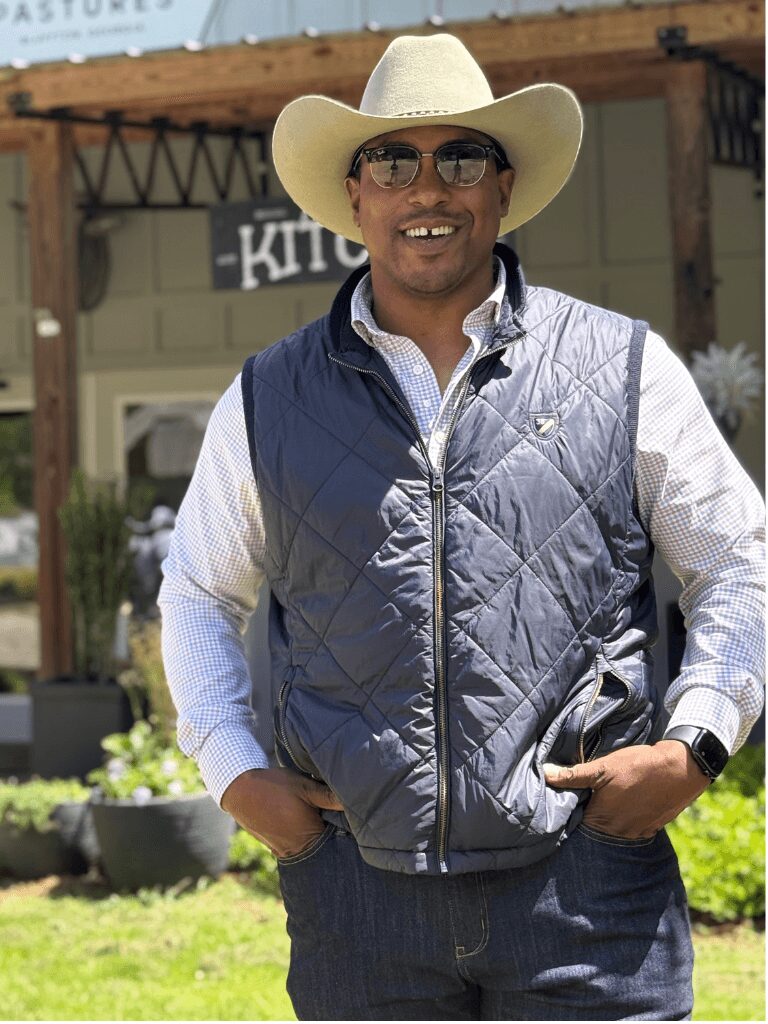
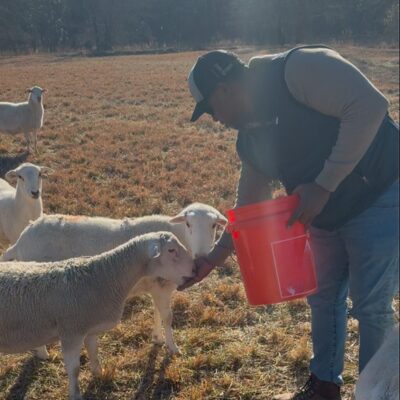
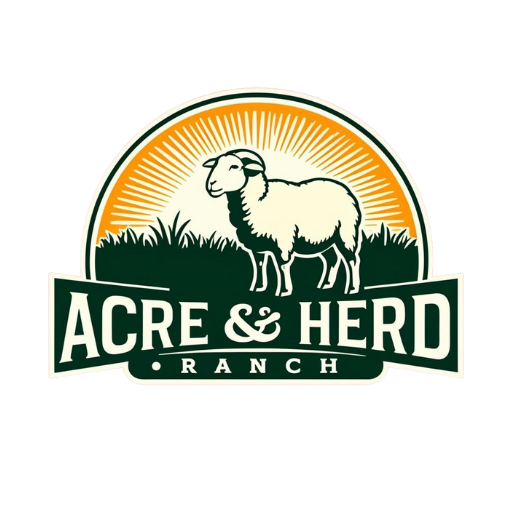
Image Credits
Acre & Herd Ranch, LLC

